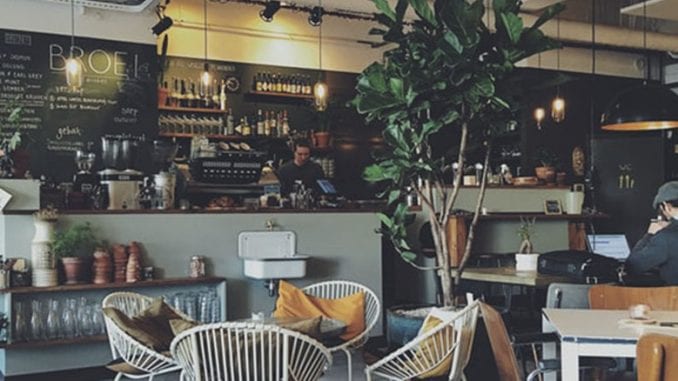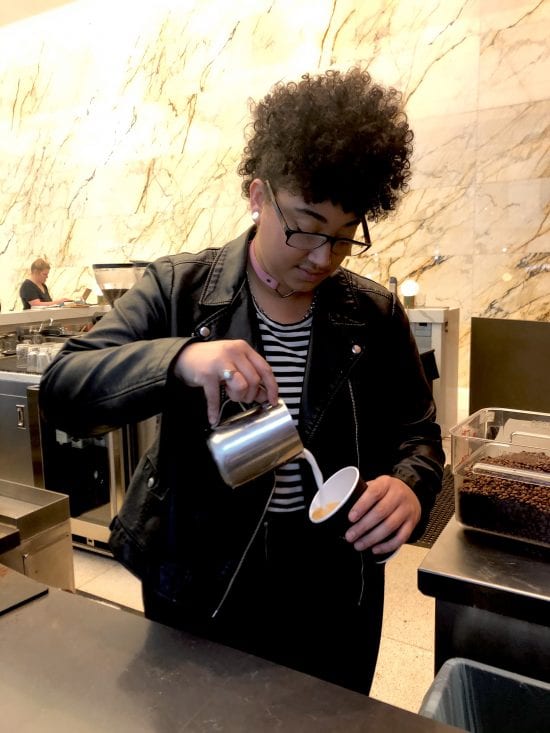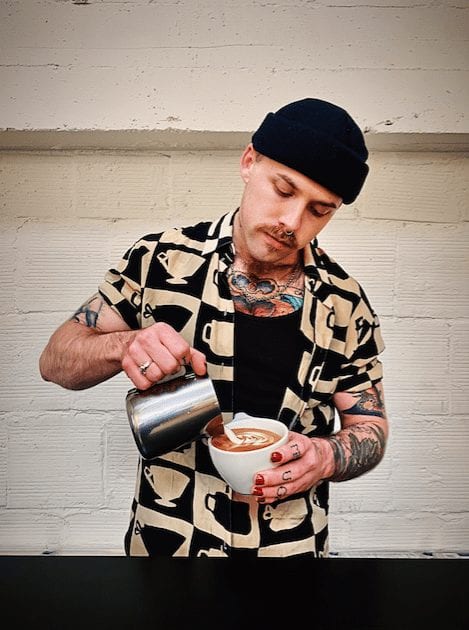
We collect some advice from nonbinary café managers and trainers to management.
BY MARK VAN STREEFKERK
BARISTA MAGAZINE ONLINE
Cover photo by Daan Evers for Unsplash
Nonbinary and gender-diverse people have always been here, and their representation in the specialty-coffee world is only increasing. We’ve been covering issues that nonbinary coffee workers face in a three-part online series, including “The Value Of Coffee Culture For Nonbinary People” and “Advice to and from Nonbinary Baristas.” In our final installment, we’re exploring how café management can support nonbinary workers and customers.
Café managers and owners have the opportunity and responsibility to create a supportive environment for workers and customers of all genders—and the sooner that is conveyed, the better. Deandré Latrice, manager of Intelligentsia Coffee in Boston, lays a foundation of pronoun and identity awareness at the first interview. “When I interview new people, (right) off the bat I ask their pronouns—this sets the tone for the fact that we do have regard for pronouns, as well as opens up a conversation if and when this causes confusion. … I let them know that we have expectations about using pronouns, and learning pronouns, and that it is totally OK if they mess up from time to time, and how to appropriately move through these mess-ups (not over-apologizing, not centering oneself, and just correcting oneself in the moment, and moving on),” Deandré says.

Dedicate a section of your employee handbook to proper pronoun usage. Eamon Smith, who does training and education for Seattle’s Caffe Vita, says, “I worked in a café once that had an entire page of their New-Hire Packet dedicated to talking about gendered language and using gender-neutral terms when referring to coworkers, or customers whose pronouns you don’t know, and I have never felt more seen and supported.”
Dandy Anderson, café manager at Stumptown Coffee Roasters in New York, points out that creating the framework for pronoun and identity awareness means including the option to not disclose. “If you ask one person their pronouns, give them the option not to share that personal information; don’t cherry-pick whose pronouns you do and don’t ask. If a staff member does not use their legal name, protect it from others. If checks arrive, put them in a secondary envelope with your team member’s chosen name. Chosen names are not nicknames! Treat people like individuals. If someone corrects you, they are not difficult,” Dandy says.

If you’re part of café management, include your pronouns in your email signature. That way even if you’re cisgendered (not transgender or nonbinary), it encourages pronoun awareness.
When it comes to making nonbinary customers feel welcome, make sure you have gender-neutral bathrooms. If you share a building that has gendered bathrooms, offer both bathroom keys, or as Deandré does, offer both bathroom codes, and let the customer decide.

Encourage workers to use gender-neutral language when addressing customers. “Even if you don’t have any queer people working for you, I think it’s SO important to educate your employees on using gender-neutral language with customers,” Eamon says. “As a customer, I’ve been places where I really enjoyed the coffee/food/product, but the person working said something like, ‘Hello, sir’ or ‘Thanks, man!’ and my experience was immediately tainted, causing me to make a mental note to never go back there. It’s seriously that easy to lose business over something that could so easily be avoided by using gender-neutral language, or just simply not adding a gender to something like, ‘Hey’ or ‘Thank you.’”
Your customer-facing employees can potentially be misgendered many times in one shift. Making it known that you respect their pronouns and identities goes a long way. Eamon says, “It feels great when a coworker asks your pronouns, but when management/ownership takes the initiative to ask, it can literally make someone never want to leave your company.”

ABOUT THE AUTHOR
Mark Van Streefkerk is Barista Magazine’s social media content developer and a frequent contributor. He is also a freelance writer, social media manager, and novelist based out of Seattle. If Mark isn’t writing, he’s probably biking to his favorite vegan restaurant. Find out more on his website.
